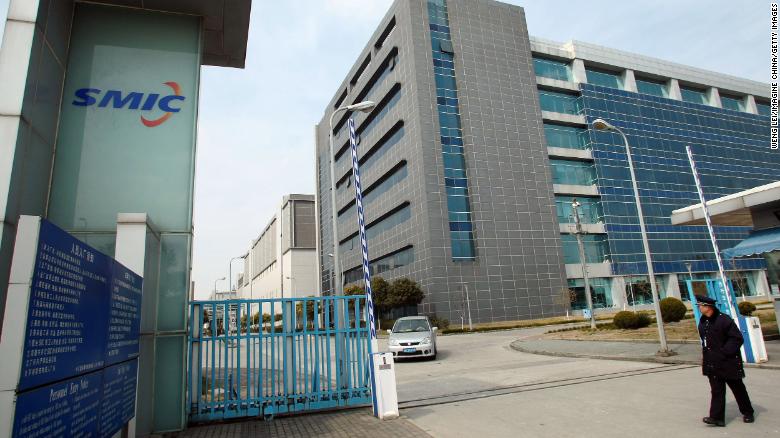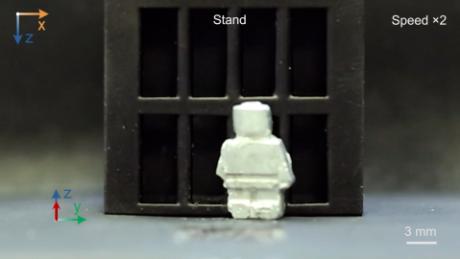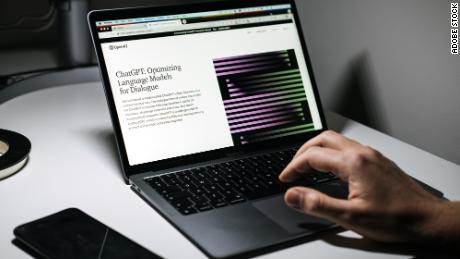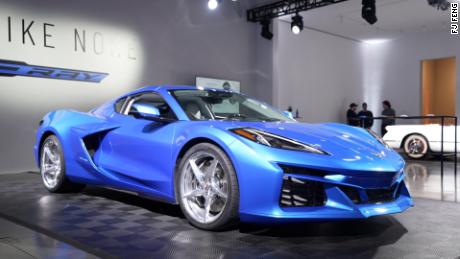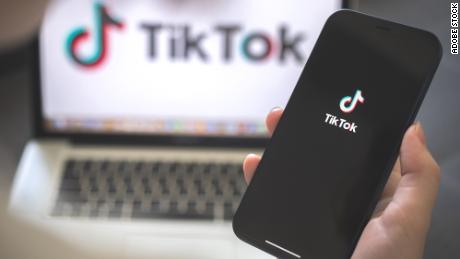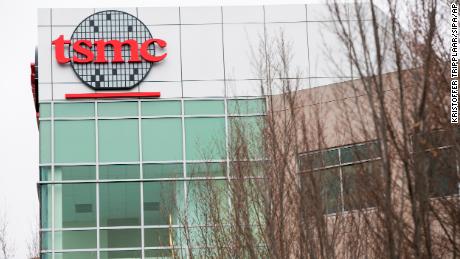Hong Kong (CNN Business)Washington is taking aim at another Chinese tech company.
SMIC (SMICY), China's biggest chipmaker, has warned investors that new US restrictions could cut it off from key technology and have "material adverse effects" on its business.
Semiconductor Manufacturing International Corporation said in a filing to the Hong Kong Stock Exchange on Sunday that its American suppliers have been issued letters from the US Commerce Department about rules for working with the chipmaker.
Under US export regulations, "accessories and raw materials to SMIC will be subject to further restrictions," and prior application for an export license is required before selling to SMIC, the Chinese company said.
SMIC did not go into further detail. The company was already dealing with other US restrictions, having been barred from supplying Huawei, the Chinese smartphone maker and 5G network supplier that is fighting for survival after a fierce US campaign against its global business.
Striking at China's biggest semiconductor maker could take the tech war with the United States into new territory. China is playing catchup to the West when it comes to chipmaking, and has plowed billions of dollars into the industry hoping to build a homegrown company capable of manufacturing leading edge chips.
But SMIC remains three to five years behind industry leaders Intel (INTC), Samsung and Taiwan's TSMC (TSM). If it is cut off from US technology, it will fall even further behind.
An 'unacceptable risk'
The statement to the stock exchange appears to confirm reports from last month indicating that SMIC was under increased pressure in the United States. The Financial Times and others reported that the Commerce Department had sent a letter to US companies warning of an "unacceptable risk" that exports to SMIC could be used for military purposes.
SMIC has repeatedly said that its semiconductors are for civilian and commercial use, and that it has no relationship with the Chinese military.
Sunday's news sent shares in SMIC tumbling nearly 5% in Hong Kong on Monday. The company's stock is down nearly 60% from a July peak of 41.95 Hong Kong dollars ($5.40). SMIC also trades in Shanghai, but markets in mainland China are closed this week for a public holiday.
SMIC is the latest Chinese tech company to run afoul of the Trump administration as tensions between Beijing and Washington reach new heights. President Donald Trump and US officials have placed restrictions on, or threatened to ban, several high profile Chinese tech companies, including Huawei, video sharing app TikTok and Tencent's (TCEHY)hugely popular messaging app WeChat.
Like many global chipmakers, SMIC relies on US software, machinery and technology to design and manufacture semiconductors. Analysts at brokerage firm Jefferies estimate that between 40% and 50% of SMIC's equipment comes from the United States.
A spokesman for the Department of Commerce told CNN Business last week that it cannot comment on SMIC's situation, but noted that it "is constantly monitoring and assessing any potential threats to US national security and foreign policy interests ... [and] will take appropriate action as warranted." The department did not respond to a request for comment outside of business hours Monday.
Further uncertainty
SMIC's fate is still murky.
The Commerce Department stopped short of adding the Chinese firm to its Entity List, a designation that could effectively ban US companies ŌĆö as well as companies that rely on American tech ŌĆö from selling to SMIC. Huawei was added to that list last year, and the Chinese tech firm's business has suffered enormously ever since.
Last week, Jefferies analyst Edison Lee wrote in a research note that the Commerce Department letter could have simply been a reminder to SMIC's business partners that the US agency's definition of "military end-users" has since April included private companies that provide products to the military. That designation has always required an export license.
"It does not mean a blanket ban on SMIC," he wrote last week.
In its Sunday statement, the company said it is in talks with the US Commerce Department, and is still assessing the impact of the restrictions. It warned that the US move could have "material adverse effects on the company's future production and operations."
The Chinese tech firm's misfortunes could be a boost for other global chipmakers, such as Samsung.
The South Korean tech conglomerate "stands to benefit from the sanctions and potential support from the US government for its semiconductor production in the United States," SK Kim, an analyst at brokerage firm Daiwa, wrote in a note last week. Samsung has had a chipmaking plant in Austin, Texas, since 1996. The company plowed $1 billion into expanding the US facility in 2017.
But US restrictions on SMIC could also hurt American companies.
Developing leading edge semiconductors requires a lot of money, and US export restrictions undercut revenue that American chip manufacturing equipment companies generate from selling to Chinese manufacturers like SMIC, Paul Triolo, head of geotechnology at Eurasia Group, wrote in a report last month.
That in turn saps "the funds available to be reinvested into the [research and development] necessary to develop subsequent generations of semiconductors and related manufacturing equipment," Triolo added.
